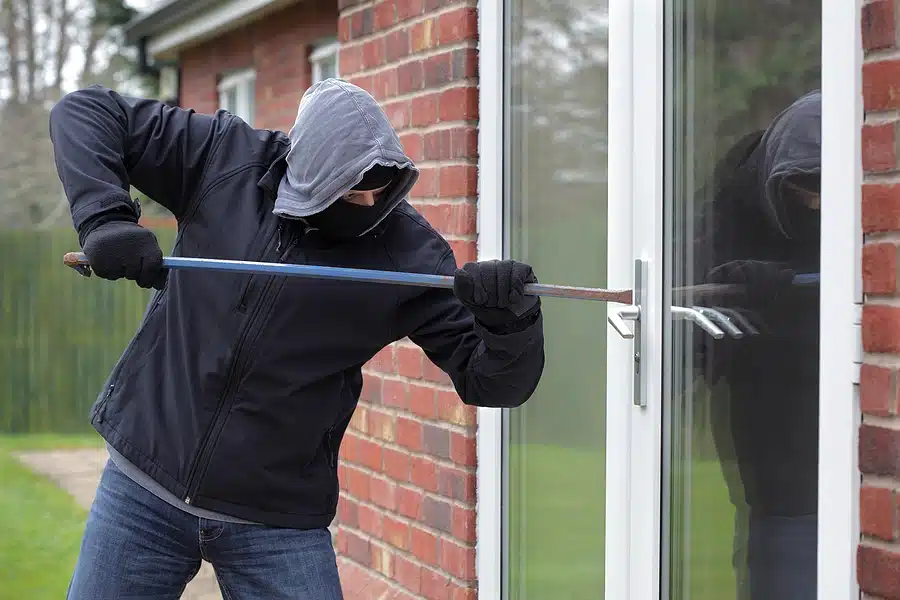Protect Your Home While Traveling

Planning to travel this summer? If so, you’re not alone. According to the Summer Travel Survey 2024 published by The Vacationer, nearly 82% of American adults plan to travel this summer. Before taking off, however, make sure to protect your home and belongings during your absence. These simple steps can reduce your risk of a break-in and address potential maintenance issues so that you can fully enjoy your time away.
How to Protect Your Home
Studies have shown that more break-ins occur during summer months than at any other time of year (including the winter holidays), presumably because more people are away from their homes. This is also the same reason why nearly two-thirds of burglaries, according to data from the U.S. Department of Justice, take place during daylight hours.
Consequently, one of the best ways to prevent theft is to make it look like someone is home. In addition, the more you do to protect your home, the greater the chances that would-be thieves will look for an easier target.
The following tips can help deter burglars:
- Leave a few curtains and blinds open. While you don’t want to allow someone to see inside your home, strategic gaps create the illusion that someone is home.
- Put timers on your exterior lights and some of your interior lights. Additionally, smart home devices allow you to control lights remotely.
- Suspend delivery of mail and any physical newspapers. An overflowing mailbox or collection of papers screams “empty house.” Consider asking a neighbor to collect any sales circulars that may accumulate (ex. those “free” publications you can’t cancel).
- Stow collectibles, jewelry, and heirlooms in a safe location away from windows. If you have time before your trip, consider creating a home inventory as well.
- Arrange to have someone, either a neighbor or a service, mow your lawn. An untended yard also sends a message that the house is unoccupied.
- Alert your alarm company or test your Wi-Fi or remote system to make sure your security system functions before you leave. Some insurance providers will lower insurance premiums for installing a security system with central monitoring. Ask your insurance broker to learn more.
- Keep a car in the driveway. For an extended trip, ask a neighbor to move the vehicle occasionally.
- Lock and deadbolt all doors and windows, including those on stand-alone structures and garages.
- Bring all spare keys indoors. Don’t leave any keys in obvious hiding spots, like under a doormat or flower pot.
- Remove ladders and other items a burglar could use to climb to a second-story window, such as a tire swing or overgrown branches.
- Install motion sensor lights and security cameras. Such measures can deter would-be burglars and allow you to monitor your home remotely.
- Consider placing high-value items in a safe deposit box. Traveling to another country? Leaving expensive jewelry at home—or in a bank—can make you less of a target.
Anticipate Common Home Maintenance Issues
While specific chores and routine maintenance tasks will vary from household to household, the following tips address the most common summer maintenance issues:
- Unplug all major electronics in case of a power surge during a summer thunderstorm. This step can protect your equipment from electrical damage.
- Make sure your gutters are clean and unclogged. Clear gutters will help prevent water damage during heavy rain.
- Secure outdoor furniture that could become debris in high winds. Tie down or store items to prevent damage.
- If you have a sump pump installed in a basement-level space, make sure it functions and that the nearby power outlet doesn’t need to be reset.
- Consider setting your air conditioner to 78-80 degrees Fahrenheit. Adjust this number based on typical indoor humidity levels to avoid mold or mildew growth.
- Check the battery in your smoke alarm(s). Ensure that all smoke detectors are working properly.
- Clear your sink and dishwasher of dishes and wipe away crumbs. Don’t invite pests to make themselves at home in your absence.
- Make sure the dishwasher, clothes washer, sinks, showers, and bathtubs don’t have standing water or lingering moisture. A dry environment will help prevent mold and mildew.
- Ask a neighbor to keep an eye on your home or hire a house sitter. This individual can check for any issues and provide additional security and peace of mind.
- Turn off the water supply to your washing machine. This step will help prevent potential leaks.
- Set the water heater to vacation mode. You’ll save energy and reduce the risk of issues arising from this appliance.
If you have any questions about your homeowners insurance policy, or if you would like a free insurance review, please call us at 877-576-5200.

